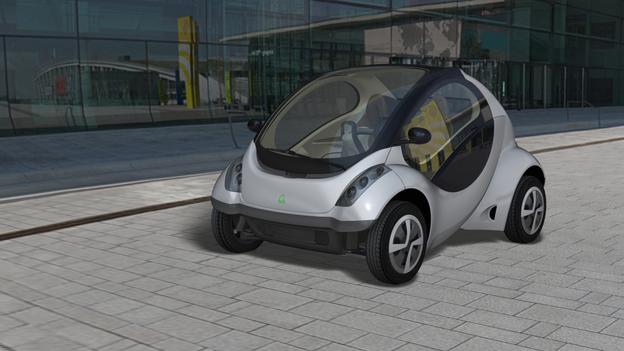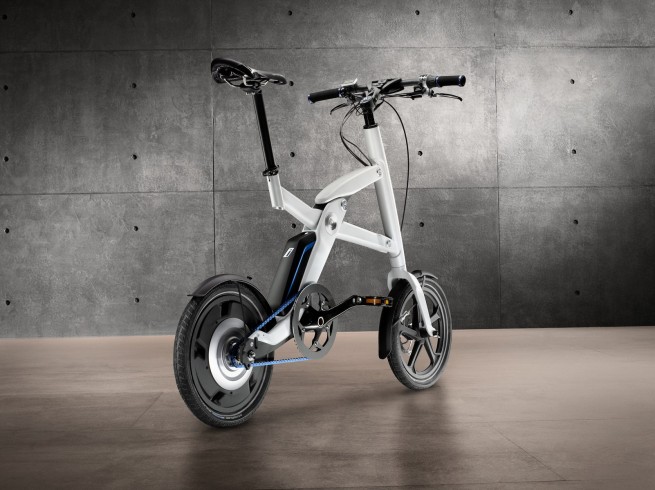Folding bikes and cars offer solutions to urban transportation problems
June 15, 2012
BMW has come up with an innovative two-wheeler, the BMW i Pedelec (Pedal Electric Cycle) Concept, designed mainly for urban areas, BMW Blog reports.
It’s a compact bicycle fitted with an electric motor that tops up the rider’s muscle power with an extra dose of torque.
It has a range of 25 to 40 kilometers (16 to 25 miles). Under braking and when riding downhill, the hub motor acts as a generator and supplies the battery with energy. It takes just four hours — or 1.5 hours on a quick charge — for the empty battery to be fully recharged from a domestic plug socket.
Folding cars

The Hiriko Fold has been designed to take commuters to and from public transport, meaning they can leave their polluting cars at home (Credit: Hiriko)
Another option is the folding electric vehicle (Micro-EV), which could enable cities to solve a long-standing mass-transit problem: how do you get commuters who don’t live or work within walking distance of a transit station to take public transport?
The Hiriko Driving Mobility Group has launched an effort to develop a prototype of the Hiriko Fold, partnered with the MIT Media Lab and the Spanish government, accorind . The Fold is scheduled to go on sale in 2013 for around US$16,400, according to BBC Future.
By deploying fleets of lightweight, folding electric cars at strategically distributed electrical charging/renting stations throughout a city and its suburbs, these vehicles could help ease traffic congestion, parking problems, and might even keep the urban air cleaner as well.
